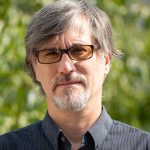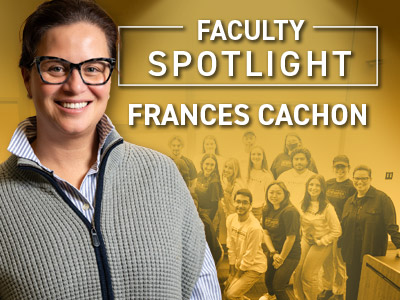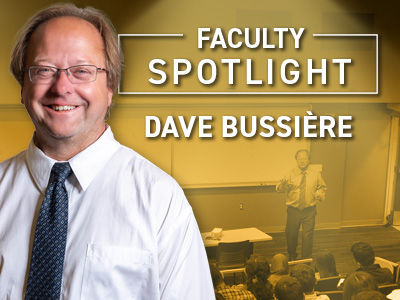Wanting to Make an Impact
Along with a few other contributing factors, a lost suitcase would change the course of Andrew Allen’s life.
Allen emigrated from Jamaica, along with his mother and 2 of his siblings, to Toronto when he was 18. He was the youngest of 10, but his other siblings had already immigrated to Canada and the USA, or stayed behind, having already established themselves in Jamaica, and his father would join them in about 5 years after he retired. “My mom came for opportunities. There was, and still is, this impression that coming to Canada, or going to the USA, or going to Europe, these are the lands of opportunity, and she wanted opportunities for us. I had just finished high school, and I knew I was going to university,” Allen said.
Throughout high school, he said he focused on the pure and applied sciences. He applied to University of Toronto’s Faculty of Science and the mechanical engineering program at Toronto Metropolitan University(TMU). He was accepted to both and chose TMU. “It was a polytechnic and they were advertising themselves as kind of this hybrid between college and university, being both hands-on and theoretical at the same time, and I was excited about that.”
Another reason he chose engineering: he is an aviation enthusiast. “When I was a kid, we had the entire series of Encyclopedia Britannica, that was our Google at the time. And I remember they had these books on life sciences, space sciences, and one on aviation. And I read that book cover to cover maybe ten times.”
Allen said the town he grew up in was on a flight path to the capital Kingston and he would love to watch planes fly overhead. If his family ever went to the airport, he said he would sit and watch planes come and go, something he still does to this day. “I used to do that in Toronto a lot. I was one of those guys out by the airport listening into air traffic control and watching planes come and go,” he said.
He even has a full flight simulator in his basement. “I just love aviation and I am fascinated by flight physics.”
He went into mechanical engineering because he liked the idea of working with machines and was told at the time that it was a broader field of study which wouldn’t rule him out for getting a job in the aerospace industry. His dream job would have been to work at what is now known as Bombardier, but that didn’t happen. After graduating, he ended up getting hired for a large company based in the US that made massive cast-iron centrifugal compressors and blowers for sewage treatment plants.
“It was fun but after a few years I felt like I was doing the same thing day in day out, like Groundhog Day. I remember my boss’s evaluation, he was upset with me because I would always go up front to socialize with the secretaries, and the folks in the shop, and the accountants, and engineers don’t do that. I realized I was probably more a people person, and that the isolation of working in the back room doing technical drafting was getting to me. I felt like I was a literal cog in a machine.”
Five years into his job, a slightly frustrated Allen was invited by his sister, a principle at a school in his hometown in Jamaica, to decompress and spend some time with family. Along the way, Allen said, the airline lost his luggage, so he went to the airport to try retrieve it and the security guard wouldn’t let him into the locker room where the lost baggage are kept. “He was a huge guy and mean as a snake.”
He went back the next day with his sister. He saw the same “mean and nasty” security guard and told her they weren’t going to get anywhere with him.
“He saw my sister, and he went, ‘Miss, Miss!’ He recognized her and talked about the impact that she had on his life as his teacher and just went on. I stood there in that moment just thinking here’s this mean, tough human being that became her student again, and he took us in, and we could have taken any suitcase we wanted!”
“I came away that day thinking, I want to have that kind of impact. I want to be that. Whatever happened there, that was magic.”
After his visit, he quit his job and applied and got into, the Bachelor of Education program at York University. No one understood except his mom. By all accounts, he seemed to be a success story: come to Canada, study hard, become an engineer, but Allen said it wasn’t fulfilling. “My heart wasn’t into it, and I was looking forward to five o’clock every day, and you should never be in a job like that.”
He wanted to learn to teach high school kids, but the only spaces available were in Primary-Junior. He was told he could eventually work towards teaching high school, but once he started teaching elementary, he fell in love with it.
For his practicum, he was placed in a grade one classroom with a teacher who was two years from retirement. She told him: “All you have to do is go in and get them excited, they’re hardwired to learn, just get them excited and get out of their way. Create the environment and make them hungry and they will move mountains, they will do anything. If they love you, they’ll do anything. I enjoyed her class and patterned myself after her.”
Allen taught from grades 1 to 5 in an elementary school in the Jane-Finch area of Toronto for the next 8 years and decided to do a Master’s in Education (M.Ed.) in his second year, partly because his sister had done an M.Ed. Upon completion, he wrote a letter to himself that said to never do anything like that again and gave copies to family and friends to give to him should he decide to do further schooling.
However, two years later, Patrick Solomon, one of his professors while he was doing his Bachelor of Education, who would become a mentor to Allen, managed to convince him to do his PhD. Allen also said he missed it. “I missed being able to talk about the academic literature and missed the classes. I just loved that stretching of your mind from spending the whole day with first graders and then going to a grad class in the evening; moving from solving the problem of the purple crayon to discussing Foucault.”
A year before he completed his PhD, he was hired as a limited term faculty at the University of Windsor. Once again, his mentor Solomon, suggested he take the job, get the experience, and move on when the time came. Allen’s plan was to work at Windsor for a short time before moving back to Toronto, but 22 years later, he is still here, and he wouldn’t have it any other way.
Teaching how to Teach Math
Allen started teaching first graders in 1991. In 1995, Allen said Premier Mike Harris’ Minister of Education, John Snobelen boasted about creating a “crisis in education” when they introduced the new Ontario curriculum. “The new curriculum was very fixed. They were going back to basics and telling us what needed to be taught and how. I feel – and this is my philosophy of elementary education – that we should be preparing our kids for the unfamiliar. There are jobs that haven’t been created yet that we can’t even imagine. Instead of preparing them for this reality, that we know right now, we need to teach them how to adapt and change and solve problems and think critically. Teach kids how to think. The root word of elementary is element; that means breaking things down to their smallest component.”
He tells his students in the Faculty of Education courses Math Foundations and Math Methodology that he teaches that “at the end of the day you want kids to understand mathematical concepts, and feel that they’re capable, they love learning, and they understand how math works. That’s what education should be.”
Allen admits that a lot of what he did when he was learning was just memorization, which was quickly forgotten once tests and exams were done. He said you know your kids are learning math if when they’re doing a problem, they can recognize when something isn’t right, and then know how to check their answers.
Many of the students he teaches haven’t been exposed to math in a classroom since high school and are not fond of the subject, and his job is to not only get them reacquainted with math, but to get them to understand mathematical concepts, have a love or appreciation for math, and then pass that on to their future students. “My job is to change their relationship with math and get them to realize that we all have a math mind. I say to them, I want you to forget everything you know, we’re going to start from scratch because I’ve got to make sure you understand, otherwise you’re going to pass on the same dislike that you have for math to your kids.”
He said he’s had students come back from their practicum and tell him that math was now their favourite subject to teach.
Later in the day of the interview for this faculty spotlight, Allen was invited to teach a group of visiting high school kids from the Jane and Finch area of Toronto to help them determine which university they would like to go to. “I am going to change how you think of Math,” he told the students. “Math is a way of seeing or describing the world. Math is based on reality. Math is the art and science of patterns and relationships.”
Allen then spent the next 45 minutes giving a brief history of math from the early days of humanity and how all cultures developed math, showing them how math can be visually reconceptualized, giving them activities and exercises to put into practice the things he had just taught, and engaging with them in in ways that made the math fun and come alive. By the end of the class, the students seemed to have enjoyed their time.
“The sweetest sound in the world for us as teachers is when a student goes, ‘Oh!’ after they have learned something new or grasped a concept for the first time,” Allen said after the class.
Going Above and Beyond
During his time at the University of Windsor, Allen has accomplished many things, however being an aviation enthusiast, starting up the Aeronautics Leadership Program was a definite highlight. He says it came about when attending an airshow in Windsor about 20 years ago. Cecil Houston, Dean of the Faculty of Arts and Social Sciences at the time, saw Allen decked out in camera gear at a local airshow and asked if he was into airplanes. Houston told him about Western’s and Waterloo’s aviation programs and how he wanted Windsor to have one as well. Allen spent the next few months visiting universities and colleges in Michigan and Ontario learning about their programs and working on creating the curriculum. Once the program was launched, he ran it as coordinator for the first few years, even doing taking flying lessons on and off, although never finishing.
He is also especially proud of is his work in Tanzania. Around 20 years ago, Allen, along with Clinton Beckford, Nombuso Dlamini, and Chris Clovis applied for a massive CIDA grant to create relationships with the University of Dar es Salaam. They received seed funding to support the preliminary work on the ground in Tanzania and to help establish the partnerships in Tanzania to make their proposal more competitive. When they didn’t get the grant, their colleague, Dr. Grace Puja, who is from Tanzania, invited them to a centre for orphaned and vulnerable children in the community she grew up in. “There were about 45 kids. We fell in love with them. The most respectful, the most polite, the most sincere, hungry-for-education kids we ever met. We said, we’re from Canada, we can help. What is your greatest need?”
Education was second on their list after food. “We were like, we can do all that. let’s go back and bring as many teacher candidates as we can every year and do that tutoring, and let’s fundraise, let’s get you the textbooks that you want, let’s get school uniforms, and let’s make sure that you have reliable food.”
Puja also took the group to the school the orphans attended. “I remember seeing a class of 80 kids, with not enough benches, a roof that needed repairing, holes in the floor,” he said.
For the next ten years, Allen and Beckford would bring teams of people to Tanzania, including teacher candidates, to help. Teacher candidates would teach at the school during the week and work at the centre on the weekend. Other teams would focus on food and nutrition, construction and infrastructure, education and tutoring, health and well-being, and there was even a team that worked with the girls and focused on women and girl’s empowerment.
“We’d be there for about 3-4 weeks. Dr. Beckford and I; we were on 24 hours a day, responsible for everybody that we took, so arranging transportation, hotel, the food, and everything. We were the last to go to bed at night, and the first ones up in the morning,” Allen said.
After ten years, Allen said he needed a break so he stepped away, but the work is still ongoing with Beckford taking the reins. Thanks to Facebook though, Allen said he is in touch with some of the former students who are adults now and have reached out to him. “They reach out all the time and tell me their stories. It makes me proud of the work that we all did helping to make a difference in their lives.”
Mentoring
Allen started teaching to have an impact on people’s lives. Along the way he has had people mentor him, people who “saw a potential in me that I didn’t see.”
If it hadn’t been for them, he likely wouldn’t be where he is now. He is reminded of something Solomon said to him. “He told me that we should always try to replace ourselves and see ourselves, and the potential, in our students.”
“Mentorship is key,” he continued. “I’ve realized that for some what’s missing are those social connections, an uncle, a next-door neighbor, a family member, a friend, the family who can offer that kind of mentorship and guidance. You don’t realize the possibilities if you don’t see it and it’s not pointed out to you. You don’t know what you don’t know.”
Allen, who just last summer became program director of a Joint PhD in Educational Studies, said he encourages his students to think about their possibilities. “I say to them: ‘I know it’s not on your radar, but I just want to put it in the back of your mind what can come next. I didn’t want to do a PhD at all, but at some point, I did, and you can too. You are a very different person from what you were 2 years ago. You will be a different person next year.’”
Allen started his teaching journey wanting to make an impact in people’s lives and that ultimately led him to teaching teachers at Windsor. “Knowing that influence now is multiplied through the number of people going off, having an appreciation for math, and going to teach in the same ways that I’ve taught them how to teach, I feel like I’m making more of an impact than if I was staying in the same room of 28 kids.”
Peter brings extensive expertise in multimedia to support CTL programs, website design, and special events. With around 25 years of experience in graphic and web design, he brings a wealth of knowledge to the table. He is a graduate of Print Journalism and Digital Media from Conestoga College, and and Communication, Media and Film from the University of Windsor.










Comments